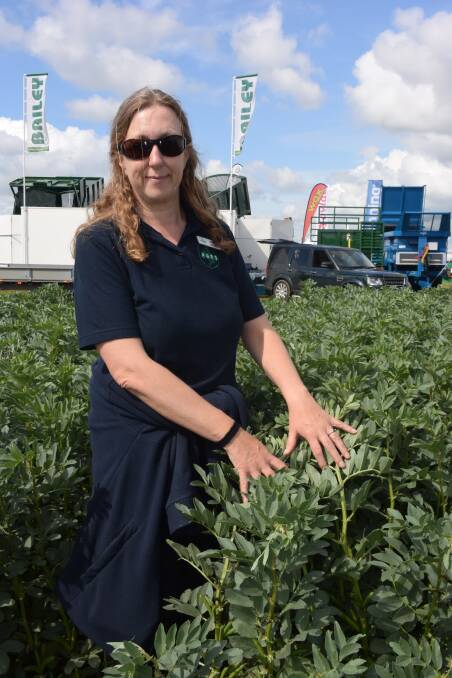
AFTER all the problems the Australian pulse crop has had with wet feet this season the average agricultural pundit here would be forgiven for thinking the green and misty climate of the United Kingdom would not be the ideal place for legume production.
Subscribe now for unlimited access to all our agricultural news
across the nation
or signup to continue reading
However, while crops such as lentils are not favoured by the climate, the British Processors and Growers Research Organisation (PGRO) said there were over 200,000 hectares of pulses planted in the UK in 2015 and that figure will probably rise in 2016 when final planting figures are calculated.
Further to that, Great Britain produces markedly more faba and broad beans each year than Australia, where beans are relatively widely grown.
Sharna Johnson, PGRO, said moisture tolerant beans were the major pulse crop grown but added there was a growing field pea industry.
The beans are grown in both winter and spring types, while the peas are generally spring-sown.
For the 2015-16 season total UK bean production was 578,000 tonnes, of which 427,000t were spring beans and 151,000t were winter beans.
This compares to total Australian bean production, of both faba and broad beans, of around 380,000t in 2015.
Ms Johnson said the split was not always so skewed in favour of spring beans but PGRO figures show they have been the bigger crop in terms of tonnage over the past five years.
The 578,000t of production represents a whopping 49.7 per cent gain on the British average production over the prior four seasons, reflecting beans’ increased popularity in UK agriculture.
Ms Johnson said farmers were increasingly growing pulses for their agronomic benefits, especially with caps on nitrogen application.
There is also a good market for the beans in the UK stockfeed sector, where producers are turning from other forms of protein, such as canola meal, to the use of beans.
This supports the established trade in human consumption beans into North Africa, in particular Egypt.
Ms Johnson said fungal diseases pressures could be high as could be expected in a high rainfall zone, but added there was a good suite of fungicide options available for the most part.
In terms of research and develop, there are small scale lupin plantings in the UK at present and the industry is monitoring how these perform which will provide growers with another grain pulse phase in their rotation.
- Gregor Heard travelled to Great Britain as part of the Syngenta Growth Awards.


